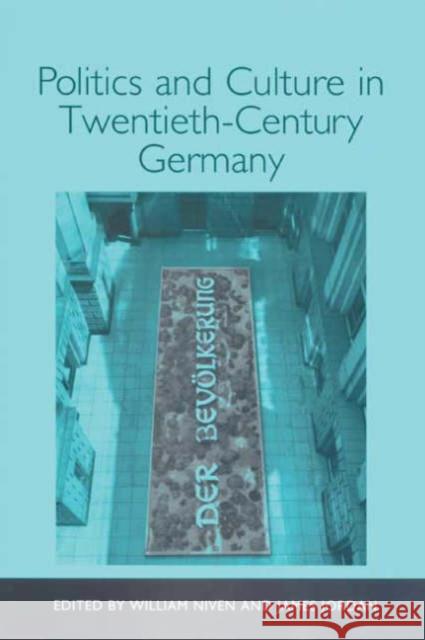Politics and Culture in Twentieth-Century Germany » książka
Politics and Culture in Twentieth-Century Germany
ISBN-13: 9781571132239 / Angielski / Twarda / 2003 / 280 str.
The cultural history of 20th-century Germany, more perhaps than that of any other European country, was decisively influenced by political forces and developments. This volume of essays focuses on the relationship between German politics and culture, which is most obvious in the case of the Third Reich and the German Democratic Republic, where the one-party control of all areas of life was extended to the arts; these were expected to conform to the ideals of the day. But the relationship between politics and the arts has not always been one purely of coercion, censorship, collusion, and opportunism. Many writers greeted the First World War with quite voluntary enthusiasm; others conjured up the National Socialist revolution in intense Expressionist images long before 1933. The GDR was heralded by writers returning from Nazi exile as the anti-fascist answer to the Third Reich. And in West Germany, politics did not dictate artistic norms, nor was it greeted with any great enthusiasm among intellectuals, but writers did tend to ally themselves with particular parties. To an extent, the pre-1990 literary establishment in the Federal Republic was dominated by a left-liberal consensus that German division was the just punishment for Auschwitz. United Germany began its existence with a fierce literary debate in 1990-92, with leading literary critics arguing that East and West German literature had basically shored up the political order in the two countries. Now a new literature was required, one that was free of ideology, intensely subjective and experimental in its aesthetic. In 1998, the author Martin Walser called for an end to the author's role as -conscience of the nation- and for the right to subjective experience. This is the first book to examine this crucial relationship between politics and culture in Germany. William Niven and James Jordan are readers in German at the University of Nottingham Trent.











